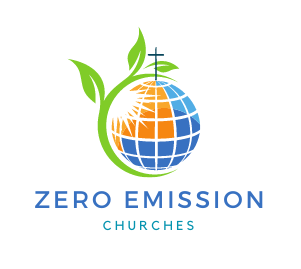
Have some questions?
Here are some answers!
-
To be “zero emissions” is to not produce any greenhouse gas (GHG) emissions; to be “net zero” is to produce some, but to offset them by absorbing them in some fashion. Either one is certainly MUCH better than the pollution caused by most churches and homes. As with anything important, there is lots of debate over definitions, goals and ways to achieve those goals. Read the links and do your own research, but beware: there are lots of voices that would rather you talk and read than that you do anything!
-
ZEC is a new, growing and rapidly evolving organization that began with the Canadian Anglican dioceses of Montréal and Niagara. (This page tells you who is currently involved). ZEC was begun by people who realized that their fellow church members are convinced by the science; they accept that the planet God gave us needs us to change our behaviour (literally, to “repent”). But many leaders don’t know what to do or where to start. ZEC is committed to helping congregations identify what they could do to be part of the solution to this human problem.
-
GHGs are causing our planet to warm significantly, and that is leading to bad things like climate change, loss of habitat, loss of biodiversity, and mass extinctions. If it continues for too long, it will likely lead to wars over water, and the end of humankind is a plausible outcome, with a tremendous amount of suffering along the way. You and I, our kids, our grandkids, and millions or billions of other people will suffer in terrible ways. But we can stop that from happening. The tools exist, and they might even make our lives better and less expensive in the medium and long terms!
-
Whether you are a church leader or member, a potential partner/educational/institutional organization or a person with relevant expertise, find your regional or diocesan coordinator and offer your help; if there isn’t one for your diocese, contact the National Coordinator. The NZC Project works with regional bodies (such as dioceses) to maximize our impact and to increase the support for individual congregations. Independent congregations may be asked to form regional groupings to increase their Net Zero impact.
-
This is one of the aspects which is evolving rapidly! For now, our chosen mandate is “To equip congregations and their diocesan leaders with the information they need in order to convert their buildings into zero emitters of greenhouse gases. We will work to find or encourage the necessary grants or carbon prices so that this conversion is feasible in the near term, and we will equip congregational members to both make similar net zero changes in their own homes, and encourage their neighbours to do the same.”
-
One answer is, “Nothing much, in comparison to the cost of doing nothing!” In practical terms, it will require some audacity (in championing this idea), some effort (in assessing your building(s) and making simple improvements), some fundraising (for eventual building improvements), and some small financial contributions for the infrastructure of this largely volunteer-led effort. Dioceses may have to contribute a very few thousand dollars each to match the initial grants from the National Science and Engineering Research Council (NSERC), and to support our applications to the Anglican Foundation and other donor groups.
